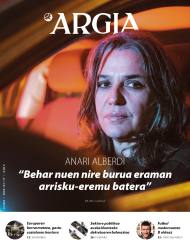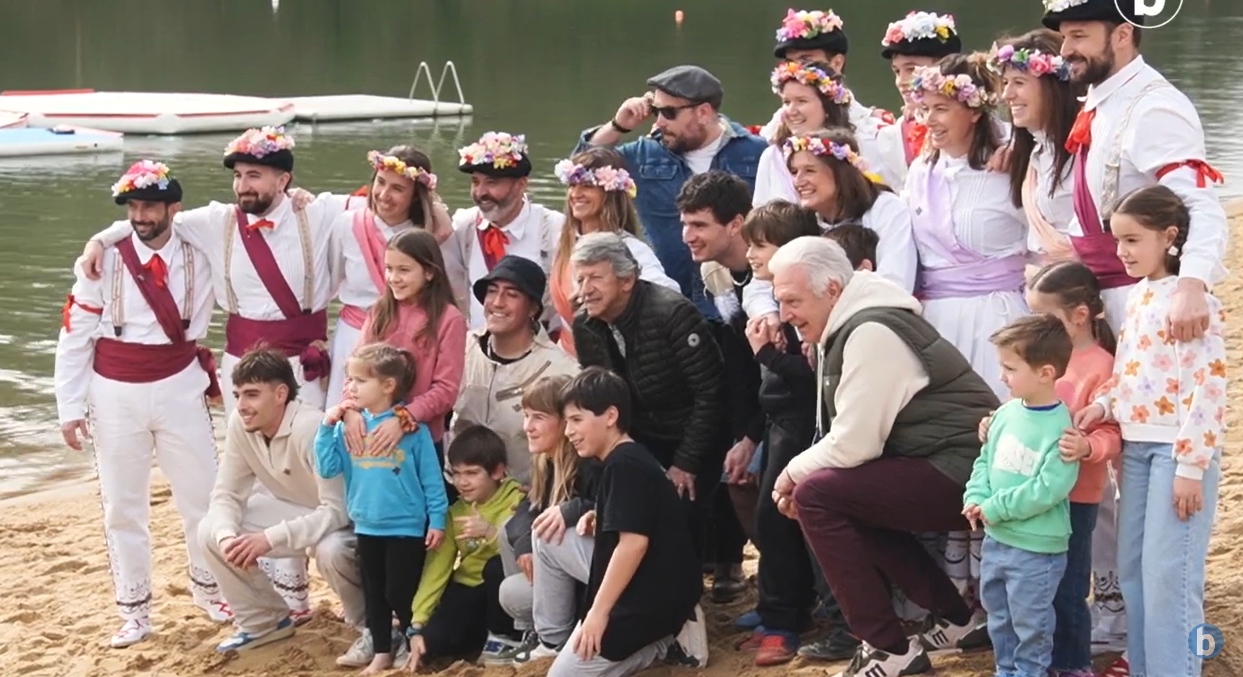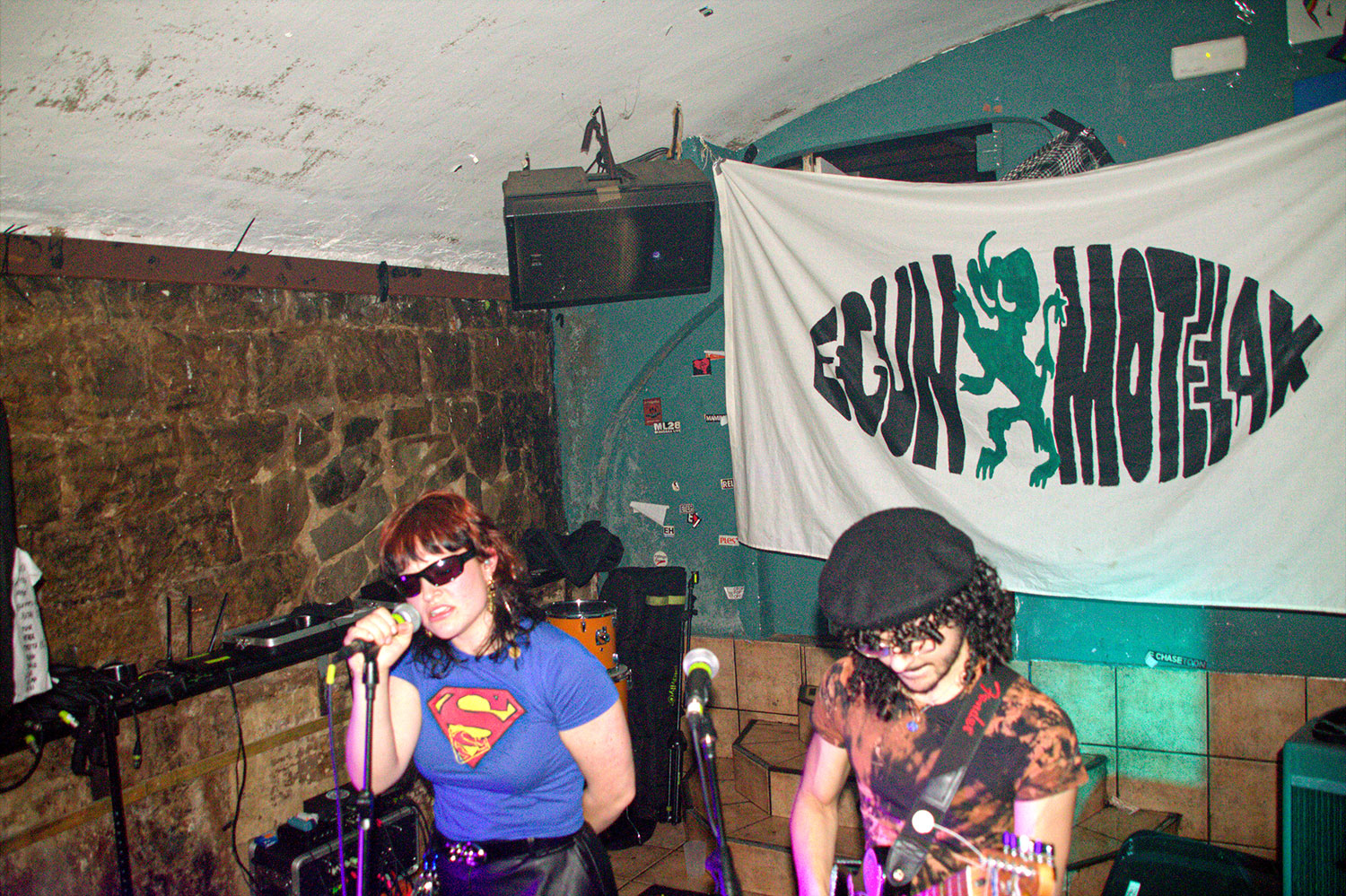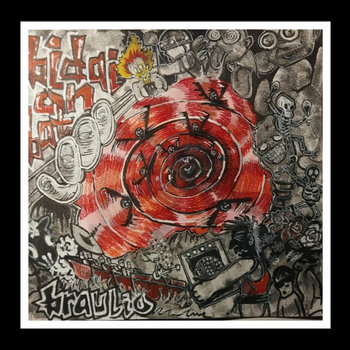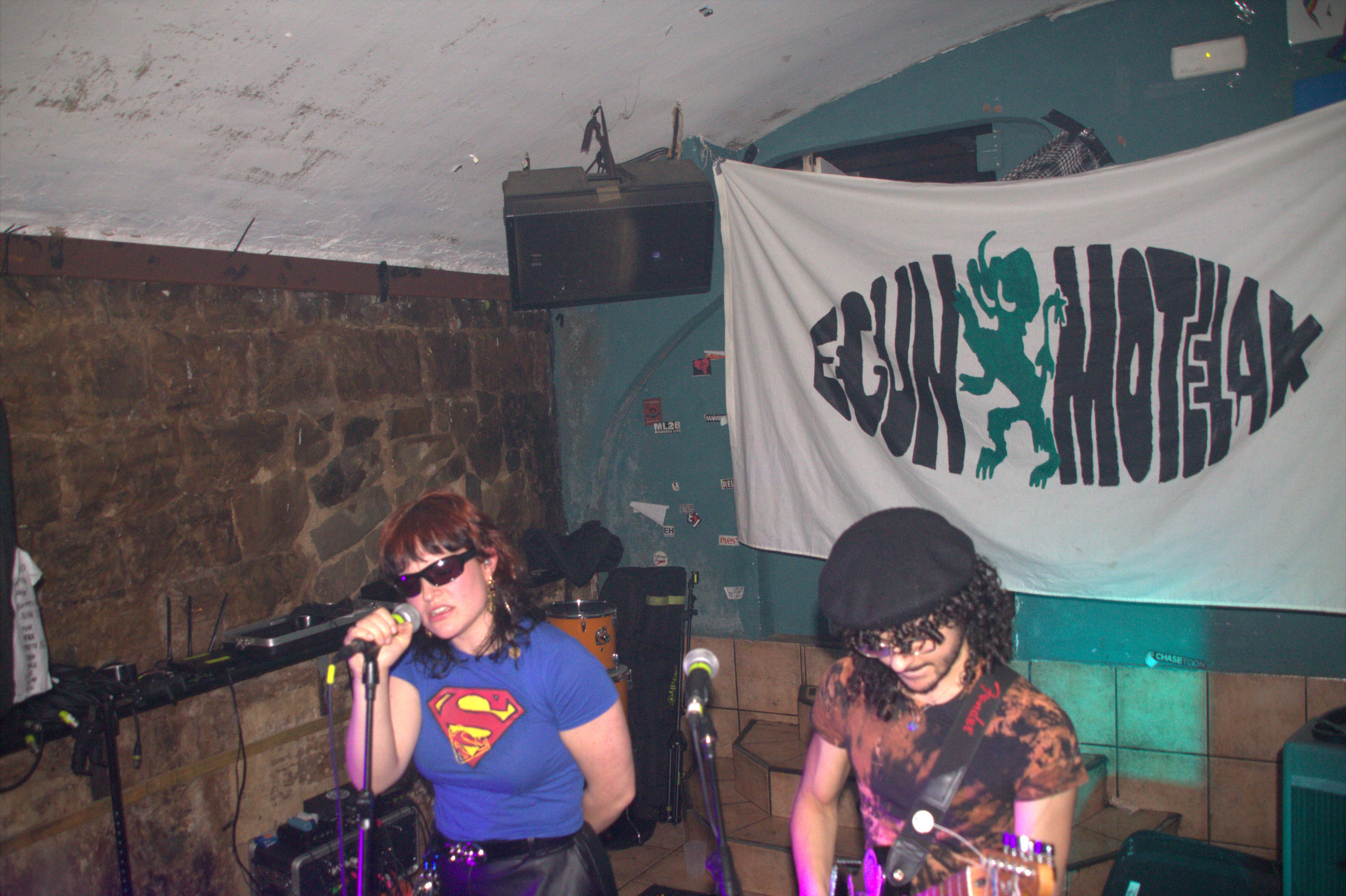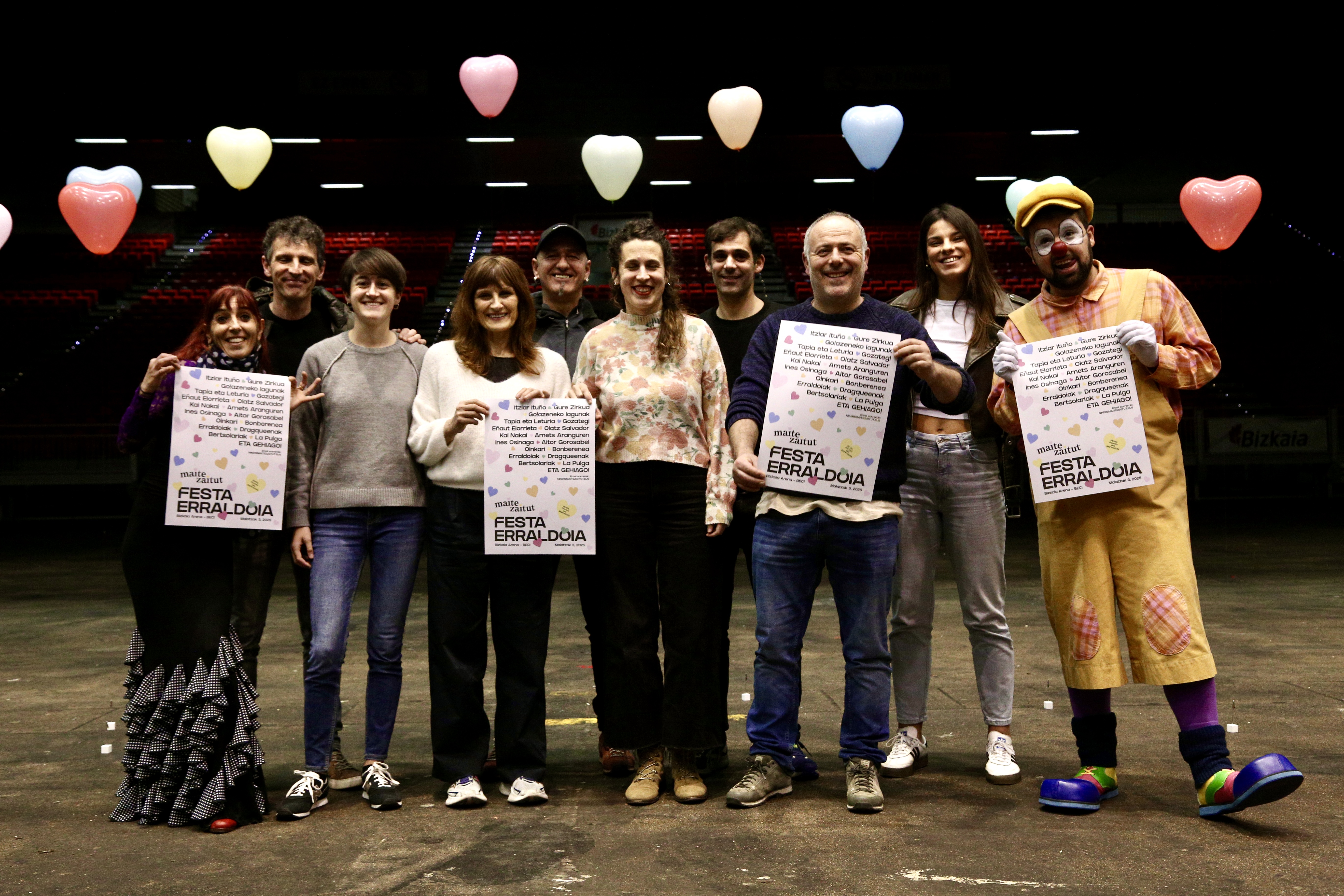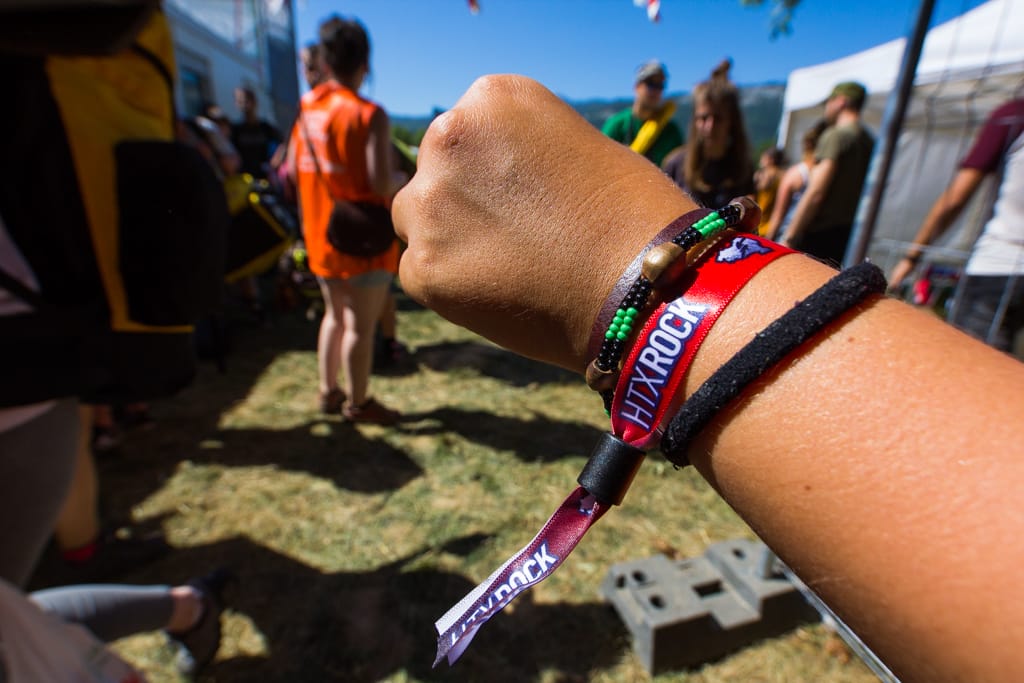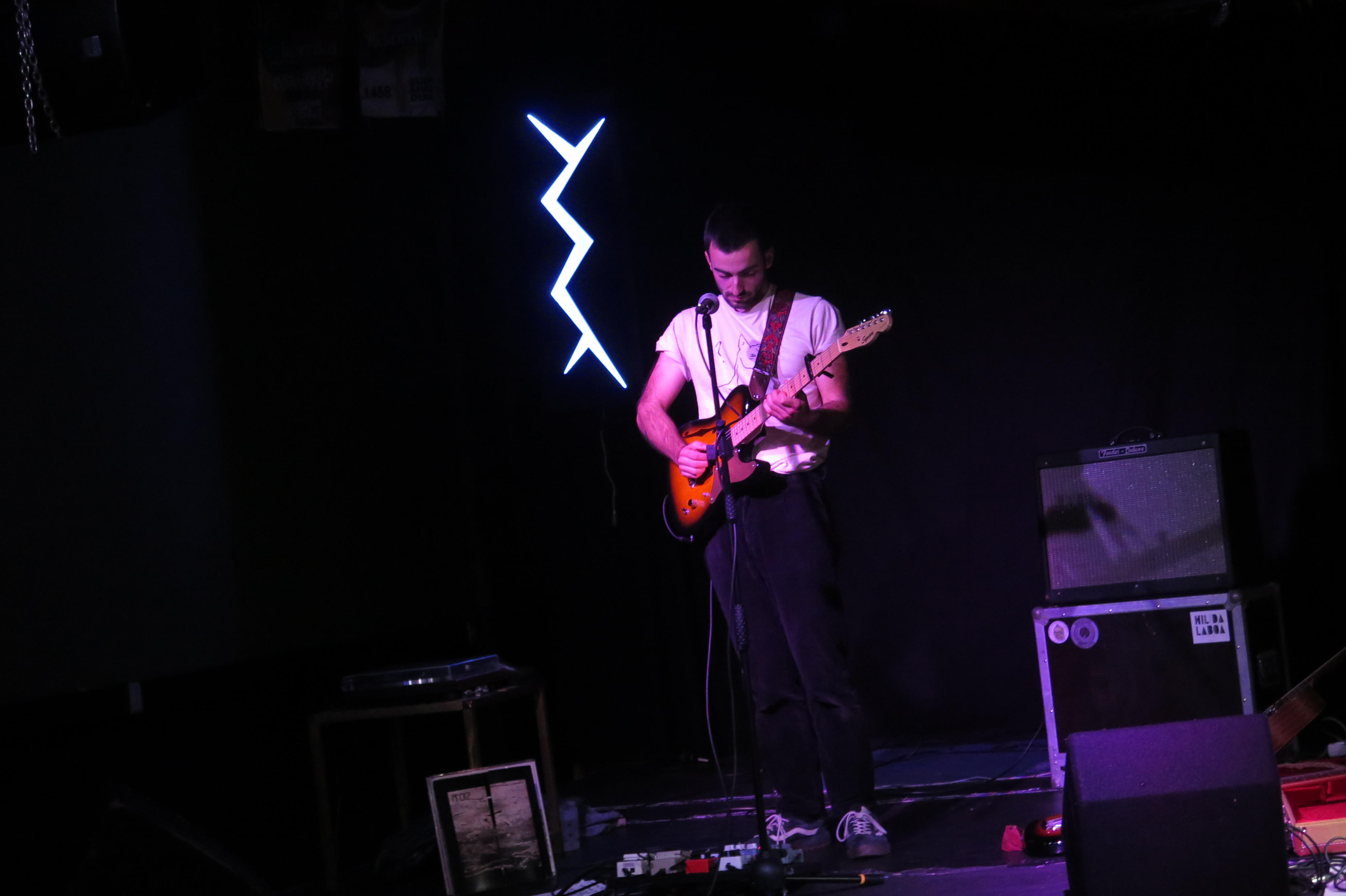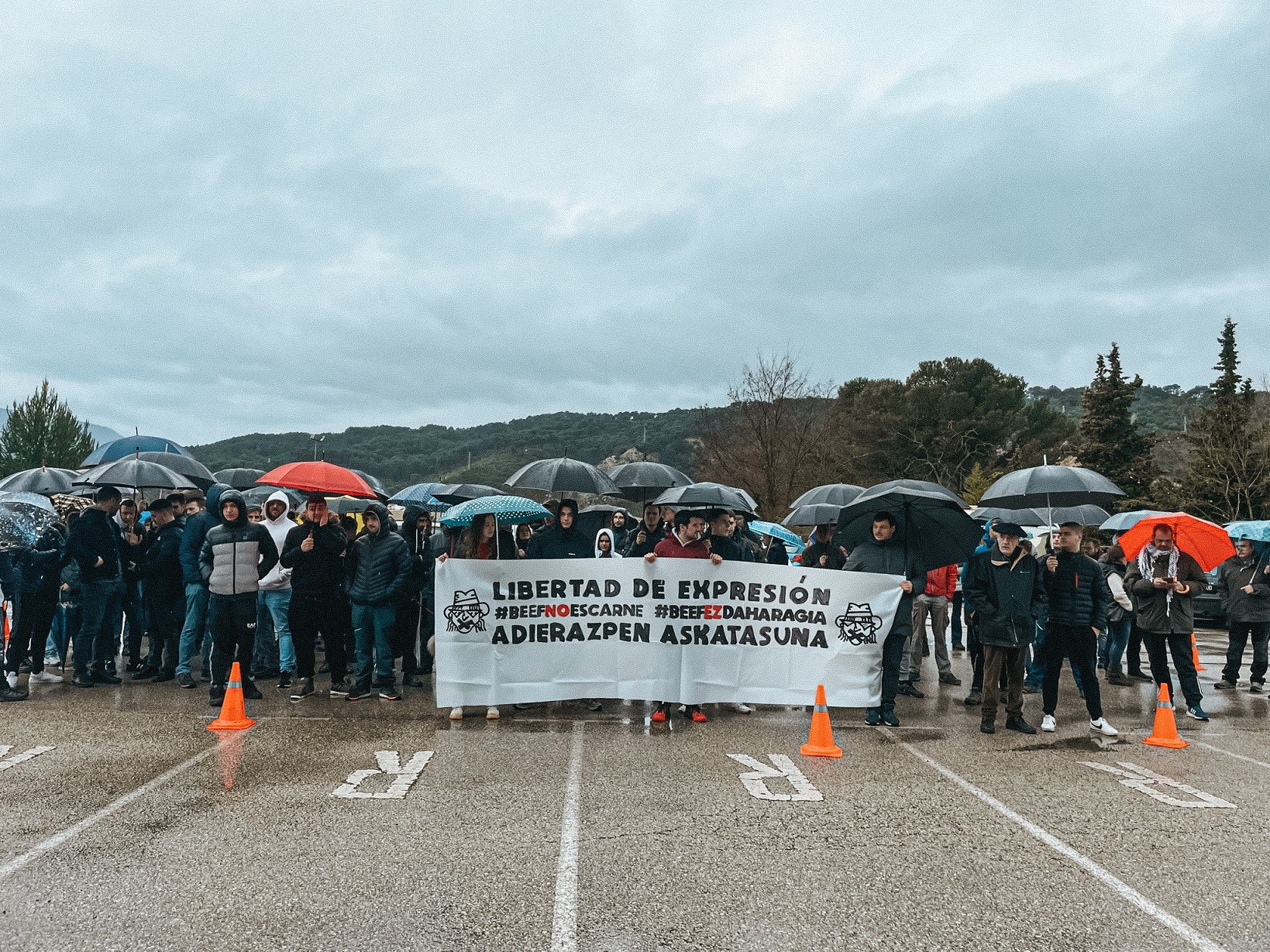"My field is socipoetic"
- We met on March 1 with Anari, the day after the publication of Human Noise. The quote is in a polygon of Andoain, where the team has a test room. We have talked about old posters and instruments, accompanied by the rhythms of the side room. Saturday 16 will offer the first presentation concert in San Sebastian.

Anari Alberdi Santesteban. Azkoitia, 1970
Musician and writer. In addition to his novel of wheat and moss (Susa, 2022), last year he published Controlled Demolitions (Eraiste Controlled) by the hand of Pumpkin Pepitas, in which the lyrics of his songs are collected in Basque and Spanish. The seventh album is human noise (the first, Anari, published in 1997). Unlike the latter, it has not done so with the Bidehuts seal. In this regard, he said: “The musicians and friends I love and look at the most are in Bidehuts. It has not been easy to decide, but without drama, I feel like doing different things and I felt I needed a more agile working structure.”
Yesterday the album came out, with what sensations are you? I'm happy, quiet. Just yesterday I felt euphoria, guilt and melancholy all three things at once. Not so long ago
I heard the whole album, and what I looked for, what I wanted to do on this album, let's say with an artistic attitude, I think it exists.
What did you want to
get? I needed to get to a risky area. I felt in a comfortable place and needed to break it again. I wanted to take another step in writing.
Towards more collective readings? Towards more concrete metaphors?
Yes, it is a more direct language.
Has that been one of your bets in writing? Yes, that was an intention. Already
in a despotization of Banentor. Writing otherwise is not removing this skin and dressing another, but turning the skin around, making it from your skin. And our poetic voice still has a lot more reverberations, because you have to sing, you have to be there. I have to be singing a dry song like the old continent, singing a song that is in Police and Schengen, I have to look for how to say it, I think that is the hard thing.
"This cannot be a self-destructive process like this, and I write down what comes out of the top, without so much transcendence. I've made this album much freer."
What was the musical wager? I like different and dynamic discs, I've always tried to do it. Maybe lately I had lost some of that pulse, and that too needed to be in dynamic songs. I have tried, on the one hand, to make dynamically different songs in the musical aspect, and then really curl the letter (does that verb exist?). I mean, every song includes its lyrics, its lyrics in the singing environment. The Trojan horse, for example, for me is a
procedure: the melody, those psychedelic keyboards -- very sensory.
.jpg)
.jpg)
From this song, Irati Zubiak today published in Berria a column in which he says: “In Epilogoa he drew the structure and industry that Anari has formed to draw in his own sadness. Perhaps in the Trojan Horse more clearly places the melancholic subject in the decline of Western civilization.”
You end up making a poetic or artistic artifact, not a theory. Of course, before you create the song, there's an analysis, a look and a search for the time, an approach, but the result is a song. I want to get an environment, I don't want to explain a thesis in this song. The analysis of the letters in this way also gives some vertigo.
I understand that, but that is normal. You have made songs of your poetics, but they come out in a context and I would say that this kind of analysis is demonstrations of appreciation. Yes, yes, of course. I took it very well. It's an honor
that people take the songs like this and suggest all that, and in the Old Continent song, for example, there's a phrase from [Zigmontage] Bauman, but it's also not a sociopolitical theory, it doesn't belong to him. My field is socipoetic, not sociopolitical. They're songs.
I think his songs have gone a little backwards. These are two things.
On the one hand, there are some such enumerations, as they could be in Oreinak. And then, among those little challenges that I've posed, I wasn't there, there's a pure narrative that could have been Ephemerides as well, but it's taken me a lot more to write this letter, it's had many versions.
On this record I've searched for a new place, I feel like I've found it, and I had the first shock of euphoria in I wasn't. I said, yes, I believe this, I believe in these songs, here. As a creator, when you've been making records for 25 to 26 years, suddenly opening up is another wonderful spectrum. For example, only now could I make a song like Vesna Vulovic, with that self-irony and a much more de-dramatized thing.
Do you remember why or when that need to write differently arises? It was already coming, and the song Piromanía opened the poetic spectrum to me
a lot, but in Piromanía, say, I was inside. So, imagine Pyrology, but without me being inside, that's a little bit the step. Then I remember that when we left the pandemic we had to play in Principal and needed another type of singing. I tried to make a song and I had some ideas, but I didn't, and then we recorded Vinu, songs and love, which came from that need.
"Many times you sing and doing, playing, recording, fixing, coming, and many times singing is a wild thing."
Remember what you needed? I needed it from me. I was lazy to sing stones or sing something
super intimate. In the end, the road is always movement, it's always movement, it's always movement, and my place was there. And then I feel like I've come to this album through the book [Gari eta goroldiozko eleberria published in 2022 with the publisher Susa].
In what sense? In the book I have made a permanent review of things and that political review. I searched the tone of the book to look at other political, social things, etc. They hide behind a lot of things. For example, there you look at the parallel landscape and you see industrialization, you see the pines. I think it is a road, but also a feeling, a sense of time, and lazy to sing on my intimate head, right now I have no
desire.
We met ten years ago. I would say that there was a moment of change: between the island and the background. How do you remember that time? I identify that moment, as an artist, suddenly as when the listener has a name and last names, and it's the time of Twitter
and social media. A much more interconnected society. On the island we had MySpace but on the Cebra there was exactly the Internet of Fotolog and Habiak, from there we came. So it was probably the time when I met listeners more, including you.
Then that time, the knowledge of you and your generation, gave me another perception of my songs, much richer, much more collective, of how you listen and receive my songs. As an example, I often mention the song Amua. I wrote alone and very alone, more alone than alone, and there they became or became something else, at that time. This time gave me another artistic and personal position.
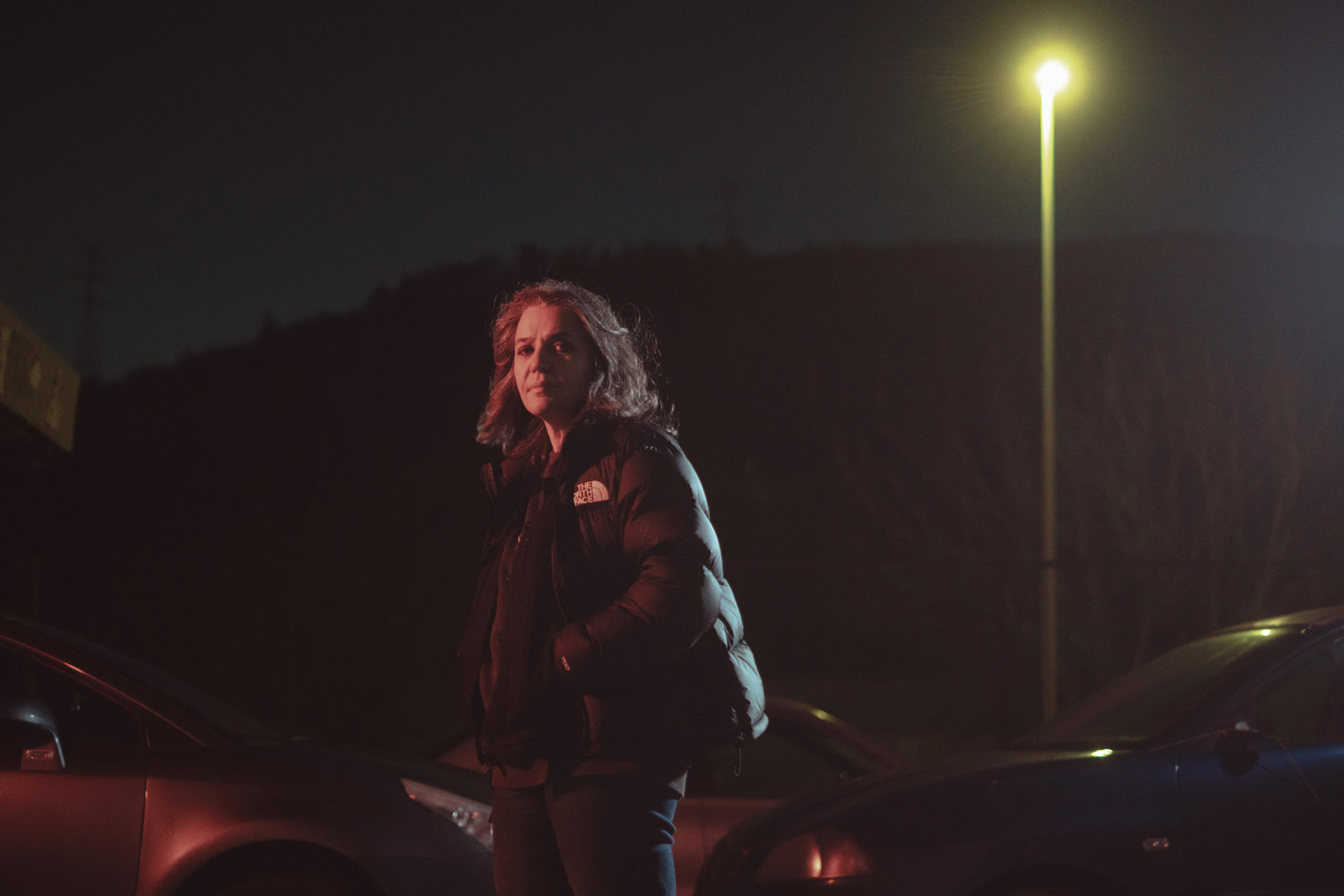
In the past, I used to work the discs by pulling out a concept. From what you have told me so far, I would say that this is not the case here. On this album I have not searched for
a concept, I have been singing on this album. Also, the songs Bunkerra I and Bunkerra II are recorded in the first shot, with errors, because I wanted, I needed, I reconnected to another danger zone on Anari's first album, with nudity, but a sonorous nudity. Many times you sing and doing, playing, recording, fixing, vibrating, and often singing is a wild thing. I wanted to keep that drive in some songs.
The truth is, I didn't know what this album was going to be like, but because
you got an epilogue very soon after your criminal record, a much more fun album, and then some loose topics thought it won't do a conceptual album again. A light disc is an epilogue, and with Epilogoa I said, "Anari, this can't be that way." I assume that you have also done so in writing, or in some other exercise. This can't be a self-destructive process like that, and I'm going to write down what comes out of me, without so much transcendence. I've made this album much freer. At the same time, I've had a really bad time, because I'm going to take a situation of extreme pressure to make a full album, but it's the same reason to make a record; if you did it singing, now you'll take a banu song or you a short narrative, it's different, but if you have to go look for a whole book, if you have to go look for a big play, you have to spend a moment of obsession, don't fall in the whole process. I'm going to tell you: I've recorded a voice twice because I wanted to change a word.
Men have been identified and will always identify with men. What happens now is that many women identify especially with what women do, and not so much with what men do, and that creates a problem, it gives them."
Oh, but it's been
from another place. And my place, as I said at the beginning, is my least demanding risk and movement, that's for me. The risk may also be to do a sweeter thing. Imagine if I would make the album that comes with piano alone, it's a danger; the danger has nothing to do with cane or guitar, but with going to a place where you haven't been.
He has been a professor for many years. In this work he has paused in recent years. Was it a bet? When I turned 50, I gave myself a gift to write a year. And, by chance of life, we're touching a lot, and now I can live from there. I think I'll come back to teaching, I like it
a lot, I like it a lot; I don't like a life like that, I wake up in the morning and call my thighs. Teaching, to me, is life, it's mud. You're in teaching, super connected to life and society.
Has this change influenced your artistic activity? In quantity, of course, in the last three years I have done a lot, but I do not know how to say quality. If it's easier, feel free to get up and act. I
live as a luxury emergency situation.
He wrote in Gari and Mosses: “Feminism: a small step for man. A giant step for humanity.” What kind of step has it been for you? Absolute. I would say I would have two steps in my life. I don't belong to a
traditional Basque family, and my superpolitical parents, so I think the first step was to become a Basque at twenty-one, and the second was undoubtedly feminism. A political relocation in the world.
"Teaching, to me, is life, it's mud. You're in super connected teaching with life and society."
Was the Basque before
he started making music? Same thing at that time. I have explained many times, for example, that I played drums in other groups, we sang in English, and in Azkoitia there was no tradition of singing in Basque; in Azkoitia it was very rare for me to start singing in Basque. I was 26 years old and surely at that time I became aware, certainly also through literature and music, but I became aware that I still have: as a political subject I am Basque.
.jpg)
"With feminism, as with all other conscious and political conceptions, everything is much harder and more interesting: the world and creation, and everything is more"
And transfeminism? It was at the time you mentioned ten years ago. Also taking into account all genealogy, but it is true that I have not militated with people of my age or have not
been there. For me that moment to which you refer was the power of Christ, through his own generation, there is another complete political layer, and from there, as a lesbian or as a mouthpiece, there is another. I don't know if it's a continuum or not, but I would cite those three as my political position in the world.
Then, of course, I've been a teaching worker and now I'm a musician, that's not in contradiction with the rest. I mean, I'm not a political person just from identities, but I've always been a very political person in my activity, both teaching and musical. Now for me, there's a false equation with that.
With feminism, as with all other conscious and political conceptions, everything is much harder and more interesting: the world and creation, and everything. For me it has had a great influence. I also came late and unsafe, in my cowardice.
I have heard
you many times that there was a change in the public. A critical mass on the front line. Have you noticed that? Of course, my audience changed at the time you mentioned. The first lines were filled with women singing on foot. I got an air of contempt for men and some male musicians. I also believed for a moment. There I've grown, in their codes.
But only from feminism can you turn around and live that with pride or with naturalness. Men have been identified and will always identify with men. What's happening now is that many women identify especially with what women do, and not so much with what men do, and that creates a problem, it gives them. It's actually just the other side of the mirror. The other half.
Bidea da helmuga
Kokein
Balaunka, 2024
--------------------------------------------------
Eibarko rock talde beterano hau familia oso desberdinetako lagunek osatu zuten aspaldi eta ia fisurarik gabe hamarkadatan eutsi dio. Izan ditu atsedenak, gorputzak hala eskatu... [+]
Elgarrekin izena du Duplak egin duen aurtengo abestiak eta Senpereko lakuan grabatu zuten bideoklipa. Dantzari, guraso zein umeen artean azaldu ziren Pantxoa eta Peio ere. Bideoklipa laugarrengo saiakeran egin zen.
Duela 150 urte, 1875eko martxoaren 7an jaio zen Maurice Ravel musikagile eta konpositorea, Ziburun. Mundu mailan ospetsu dira haren lanak, bereziki Boleroa. Sarri aipatzen da Parisen bizi izan zela, kontserbatorioan ikasi zuela aro berri bateko irakasleekin, munduko txoko... [+]
Zuloa
Merina gris
Sonido Muchacho, 2025
-------------------------------------------------------
Euskal Herrian ez da orain arte horrelako musika elektronikorik egin. Esango nuke Merina Grisek historian euskaraz egin den elektronika eta hyperpop diskorik landuena egin... [+]
Gazteagotan baino lotsa handiagoa dauka, baina horrek ez dio saltsa askotan ibiltzeko gogoa kentzen Leire Zabalza Santestebani (Iruñea, 1990). Beste gauza askoren artean, Motxila 21 musika taldeko kidea da. Nabarmendu du musika gauza asko aldarrikatzeko bide izan... [+]
Bidai on bat
Braulio
Autoekoizpena, 2024
-----------------------------------------------------
Nik ez nioke talde bati Braulio izena jarriko; eta seguruenik inork gutxik hasiko luke lan bat sei minutuko iraupena duen kanta batekin. Baina hauei parra die eta horri esker... [+]
Hiuzz + Bloñ + Adur
Noiz: otsailaren 15ean.
Non: Iruñeko Aitzina tabernan (Egun Motelak kolektiboa).
--------------------------------------------
Larunbat goiza Iruñean. Neguko eguzkitan lanera doazen gizon –eta ez gizon– bakarti batzuk... [+]
Things aren’t easy in fact, and it will be for one reason or another, but lately I’ve bitten my tongue more than I should for these two things: the culture of the sold out and the FOMO – the latter perhaps has to be explained, because it’s not said so many times: the... [+]
Ultra
La Furia
Baga Biga, 2024
---------------------------------------------------------
Cascanteko La Furia-k bosgarren diskoa plazara atera du. Mimoz eta erraietatik, berarentzat funtsezkoak diren osagai horiekin, prestatu du honako pozima, pozoitsua eta aldi berean... [+]
EMEADEDEI + MAHL KOBAT
WHEN: February 2nd.
IN WHICH: In the youth center of Zuia, Murguía.
----------------------------------------------------
On September 20 of last year, we first heard about collective music in the profile of the social network they had just created:... [+]









